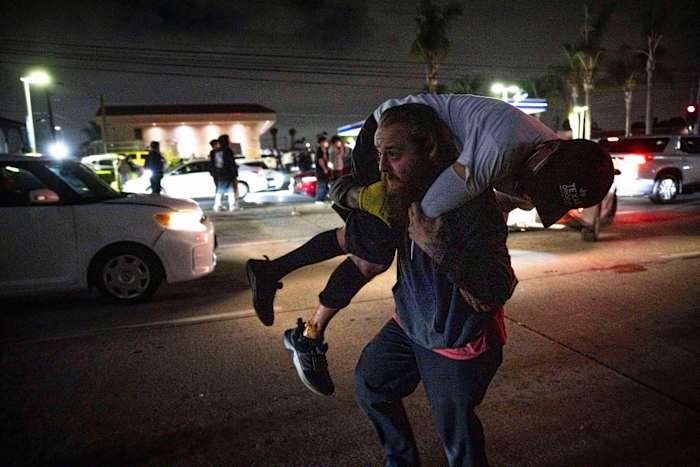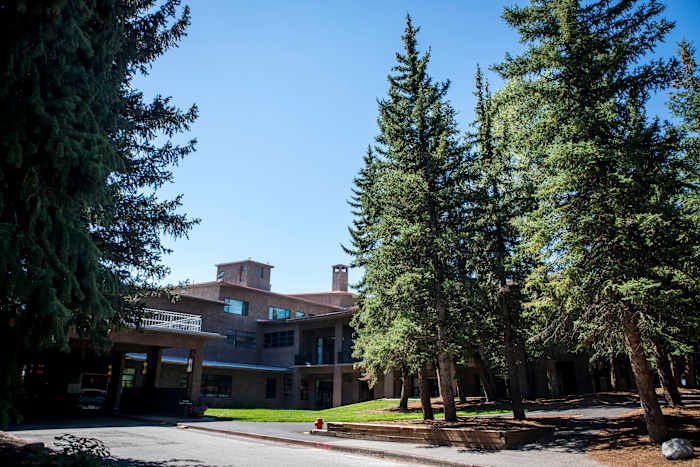In a move that has sent shockwaves across the nation, National Guard troops have been deployed to Los Angeles on orders from President Donald Trump. The action comes as protests erupted in response to federal immigration authorities ramping up deportation efforts in the region. As the country watches these developments unfold on the West Coast, communities here in Orlando are also reflecting on the broader implications for immigration policy, civil liberties, and national unity.
Background: Why the National Guard Was Sent to Los Angeles
The recent decision to send National Guard troops to Los Angeles followed days of escalating protests in several neighborhoods. Demonstrators have gathered outside government buildings and detention centers, voicing opposition to intensified immigration raids and the detention of undocumented residents.
President Trump justified the deployment by citing the need to restore order and support local law enforcement. He stated, “We must maintain the rule of law and ensure the safety of all Americans.” Critics, however, argue that the presence of armed troops could exacerbate tensions and infringe on the right to peaceful assembly.
This federal intervention is reminiscent of previous occasions when the National Guard was called in to manage civil unrest. The move raises questions about the balance between public safety and the freedom to protest, an issue that resonates deeply with Orlando’s diverse population.
Protests and the Response on the Ground
Since the announcement, Los Angeles has witnessed large-scale protests with thousands taking to the streets. Many demonstrators carried signs demanding an end to what they see as unjust deportations and calling for more humane immigration policies. The atmosphere has been charged yet largely peaceful, though some confrontations with law enforcement have been reported.
National Guard units have been seen patrolling key areas alongside local police, particularly around federal buildings and known protest hotspots. The goal, according to officials, is to deter violence and protect property. So far, several dozen arrests have been made, mainly for curfew violations and failure to disperse.
For Orlando residents, these images may feel all too familiar. Our city has hosted its own rallies and vigils in support of immigrant families. The events in Los Angeles serve as a reminder of the ongoing debate over immigration reform and the real-life impact these policies have on communities across the country, including right here in Central Florida.
Political and Community Reactions Nationwide and Locally
The deployment has sparked a heated political debate from coast to coast. Supporters of President Trump praise the decision as a necessary measure to uphold law and order. They argue that the National Guard’s presence will help prevent violence and ensure enforcement of immigration laws.
Opponents, including many civil rights groups and local leaders in Los Angeles, warn that the deployment risks escalating tensions and intimidating peaceful protesters. They point to the importance of protecting First Amendment rights and urge the government to address the root causes of unrest rather than relying on military force.
Here in Orlando, local advocacy organizations like the Hope Community Center and Florida Immigrant Coalition have expressed solidarity with protesters in Los Angeles. They stress that Central Florida is home to a large immigrant population and that any changes in federal policy or enforcement can have immediate and profound effects on local families and businesses.
Orlando city officials have also weighed in, emphasizing their commitment to fostering a welcoming and inclusive environment. Mayor Buddy Dyer reaffirmed Orlando’s dedication to diversity and called for constructive dialogue at the national level to resolve immigration issues peacefully and humanely.
What This Means for Orlando’s Immigrant Community
While the National Guard has not been deployed to Orlando, the situation in Los Angeles is causing anxiety among many local residents—especially those with family members who are undocumented or facing deportation proceedings. Legal aid organizations in Central Florida have reported an uptick in calls from concerned individuals seeking advice and support.
Community leaders are urging Orlando residents to stay informed, know their rights, and seek assistance if needed. Numerous workshops and “Know Your Rights” seminars are being organized in the coming weeks to help immigrants understand what to do if approached by law enforcement or immigration authorities.
Schools, churches, and businesses in the Orlando area are also stepping up, offering resources and safe spaces for those affected. As the national conversation about immigration enforcement continues, the hope among many in Orlando is for compassionate solutions that keep families together and respect the dignity of all residents.
The National Ripple Effect: Orlando’s Role in the Conversation
The deployment of the National Guard in Los Angeles is not just a local story—it’s a national one. What happens in a major city like Los Angeles often sets the tone for how similar situations might be handled elsewhere, including here in Orlando.
Orlando is uniquely positioned as both a destination for immigrants and a hub for national dialogue. Our city’s leaders, advocacy groups, and residents have an important role to play in shaping a more inclusive future. By staying engaged, voicing opinions, and supporting those affected by these policies, Orlando can help ensure that the national conversation on immigration reflects our community’s values of fairness, opportunity, and respect.
Conclusion: Join the Conversation
The arrival of National Guard troops in Los Angeles highlights the deep divisions and urgent questions facing our country regarding immigration, protest, and the role of government. As Orlando watches these events unfold, it’s crucial for our community to stay informed and involved in the ongoing dialogue.
What are your thoughts on the situation in Los Angeles? Do you think the National Guard deployment was justified, or are there better ways to address public concerns? How should Orlando respond to
















